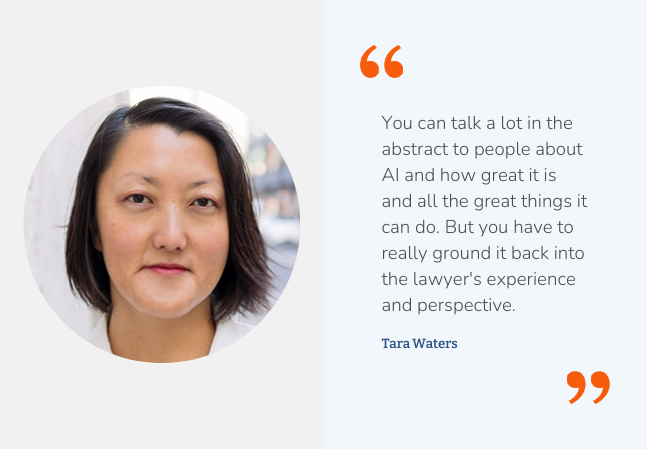Welcome to BARBRI, the trusted global leader in legal education. Continue to access the same expert-led Strafford CLE and CPE webinars you know and value. Plus, explore professional skills courses and more.
About the Course
Introduction
This CLE webinar will guide corporate counsel on the controls that can be utilized when considering vendor or partner agreements and the potential risks posed by artificial intelligence (AI). The panel will offer practical guidance for establishing AI policies.
Description
Companies and law firms need to control the risks posed by AI. But when your company purchases an AI tool from a vendor, or supports partners like Legal Aid organizations who may have integrated AI tools into their client service processes, you really don't have that much control.
This panel will discuss what types of controls are possible with third-party AI systems, how to balance the benefits of working with the vendor or partner versus the risks posed to your employees or partners, and how to evaluate what policy terms are "nice to have" versus non-negotiable.
At the conclusion, participants should feel empowered to ask better questions when creating AI policies that impact vendor or partner agreements, understand the issues associated with the most common policy challenges, and learn through the experience of panel experts who have had to face these same issues in their organizations and firms.
Listen as our authoritative panel provides guidance on the benefits and risks associated with third-party vendors, the possible controls to leverage, and setting AI policies impacting vendor and partner agreements.
Presented By

Mr. Boehme is a technology entrepreneur and the author of Smart Risks: AI in Self-Insurance. He also co-authored, Safe AI Basics: How to Practically Apply Basic Safety Principles to AI Augmented Systems. Mr. Boehme currently serves as a Partner at the 1000 Fund and as Chief Operating Officer of BillingNav, a leading technology-enabled medical balance billing solution for self-funded employer health plan participants. In addition, he is a Senior Fellow at the Center for Negotiation & Dispute Resolution at the University of California College of Law, San Francisco, and co-chairs the Center for International Legal Studies Mediation Symposium, held biannually in Austria.

Mr. Draper, Ph.D., P.E., is a technologist whose career has focused on reducing human errors using novel technologies in safety critical environments. He is CEO and Co-Founder of AI Identity company morriganAI (www.morriganAI.com) has held roles from computational modeler in the aerospace industry to C-suite positions in the renewable fuels industry and supported entrepreneurial and intrapreneurial efforts at companies ranging from startups to Fortune 100 companies in industries including real estate to automotive to education. In the LegalTech space, Mr. Draper has been a longtime contributor and leader to problems of data security, confidentiality, and equitable information use for applications ranging from dispute resolution to access to justice. He is a Visiting Scholar at the Indiana University Ostrom Workshop focusing on blockchain governance and intangible valuation and a Fellow of the National Center for Technology in Dispute Resolution.

Mr. Galkin dedicates his legal practice to representing SaaS, artificial intelligence (AI), e-commerce, information technology and new media businesses across the U.S. and around the world. He serves as a trusted adviser to startup, emerging, established and multinational corporations on their core commercial transactions including licensing, AI governance, development, alliance, distribution, outsourcing arrangements, IP licensing and transfer, regulatory compliance, and agreements for SaaS and online businesses. Mr. Galkin's broad experience gained during more than 20 years in practice allows him to provide cutting-edge, creative and practical solutions to complex problems relating to information technology, intellectual property licensing and other commercial transactions that impact daily business operations. He has served as an adjunct professor of Computer Law at the University of Maryland School of Law; an adjunct professor of Business Law at the Merrick School of Business at the University of Baltimore; Special Intellectual Property Counsel for the Office of the Maryland Attorney General; and Chairperson of the “Crimes in Cyberspace Panel” for the National Information Systems Security Conference (Sponsored by the National Security Agency).
-
This 90-minute webinar is eligible in most states for 1.5 CLE credits.
-
Live Online
On Demand
Date + Time
- event
Wednesday, December 17, 2025
- schedule
1:00 p.m. ET./10:00 a.m. PT
I. Controls with third-party AI systems
II. Benefits of working with the vendor or partner vs. risks to employees or partners
III. Evaluating policy terms
IV. Best practices
The panel will review these and other important considerations:
- How to spot and prioritize red flags related to AI in vendor agreements
- Model governance in contracts: availability vs. quality SLAs, model change control, version pinning, and rollback rights
- Controls that can be put in place with third-party AI systems
Unlimited access to premium CLE courses:
- Annual access
- Available live and on-demand
- Best for attorneys and legal professionals
Unlimited access to premium CPE courses.:
- Annual access
- Available live and on-demand
- Best for CPAs and tax professionals
Unlimited access to premium CLE, CPE, Professional Skills and Practice-Ready courses.:
- Annual access
- Available live and on-demand
- Best for legal, accounting, and tax professionals
Unlimited access to Professional Skills and Practice-Ready courses:
- Annual access
- Available on-demand
- Best for new attorneys
Related Courses

Multinational Data Privacy Compliance: Managing EU and UK Regulatory Requirements
Tuesday, March 24, 2026
1:00 p.m. ET/10:00 a.m. PT

California Climate Disclosure Laws: Compliance Strategy for SB 253 and SB 261
Available On-Demand
Recommended Resources


Expert Interview: Tara Waters and How AI Can Bring People Together
- Legal Technology

